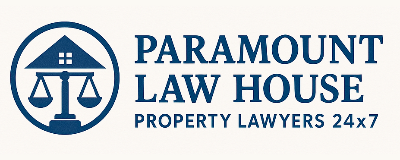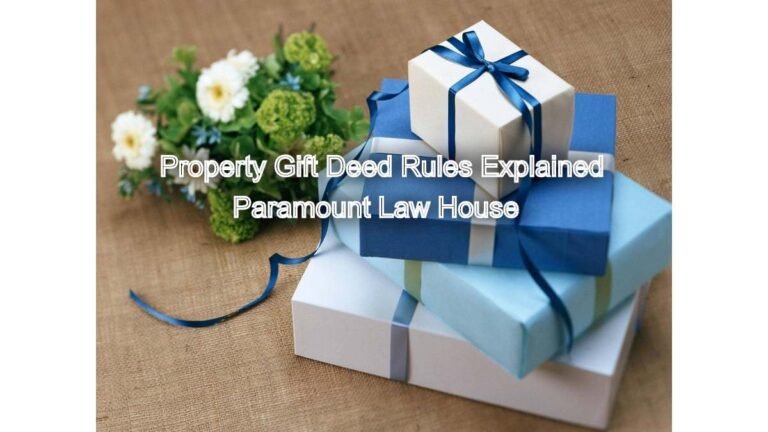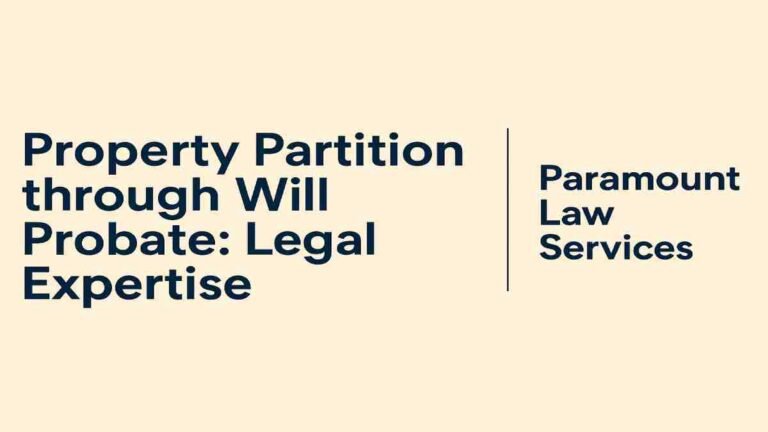House Owner Tenant Issue Resolution: Legal Support Available
House Owner Tenant Issue Resolution: Renting property can be a win-win. House owners find income. Tenants find a home. However, disputes sometimes…
House Owner Tenant Issue Resolution: Renting property can be a win-win. House owners find income. Tenants find a home. However, disputes sometimes arise. These can range from minor disagreements to significant legal battles. Both parties have rights. Both also have obligations. Understanding these is crucial. The law provides a framework for resolving these issues. Paramount Law House: Property Lawyers 24×7 offers expert legal support. We guide both house owners and tenants. We help them navigate complex property laws. Ensure fair and efficient resolution of disputes. We strive for harmonious living arrangements.
Harmonizing Homes: House Owner-Tenant Issue Resolution Through Legal Support
Understanding the Legal Landscape: Rent Control and Tenancy Laws
India’s tenancy laws are complex. They vary by state. The primary legislation governing landlord-tenant relationships in many states is the Rent Control Act. For instance, in Tamil Nadu, the Tamil Nadu Regulation of Rights and Responsibilities of Landlords and Tenants Act, 2017 (TNRRLRT Act), now governs most tenancies. This Act replaced the older Rent Control Act. It aims to balance the rights of both parties. It promotes transparency. Reduces litigation. Additionally, the Transfer of Property Act, 1882, also applies to tenancy matters. It covers aspects like leases. Understanding which specific Act applies to your property is fundamental. Our lawyers at Paramount Law House possess in-depth knowledge of these state-specific laws.
Key Documents: The Tenancy Agreement
The tenancy agreement (or rent agreement) is the cornerstone of any landlord-tenant relationship. It is a legally binding contract. It outlines the terms and conditions of the tenancy.
- Parties: It identifies the landlord and the tenant.
- Property Details: It specifies the rental property.
- Rent and Deposit: It states the monthly rent, security deposit, and payment schedule.
- Lease Period: It defines the duration of the tenancy.
- Notice Period: It outlines the notice period for termination by either party.
- Responsibilities: It details maintenance responsibilities, utility payments, and usage restrictions.
A well-drafted and properly registered agreement is crucial. It minimizes ambiguities. It provides a clear legal basis for resolving disputes. Improperly drafted or unregistered agreements can lead to significant legal challenges. Our firm specializes in drafting robust tenancy agreements. We ensure they comply with relevant state laws. We protect our clients’ interests from the outset.
Common House Owner-Tenant Issues and Their Legal Remedies
Many common issues can lead to disputes. Each often has specific legal remedies.
- Rent Default/Arrears: When a tenant fails to pay rent, the landlord can issue a legal notice demanding payment. If payment is not made, the landlord can initiate eviction proceedings.
- Eviction: Landlords can seek eviction for specific reasons. These include rent default, unauthorized sub-letting, property damage, or using the property for illegal purposes. The TNRRLRT Act specifies grounds for eviction. It also outlines the process.
- Illegal Eviction/Unlawful Possession: Tenants have rights. A landlord cannot evict a tenant without following due process. This usually involves a valid notice and a court order. Illegal eviction can lead to legal action by the tenant.
- Property Damage: Disputes over damage to the property (beyond normal wear and tear) are common. The tenancy agreement should specify responsibility. Legal action might be needed to recover repair costs or adjust the security deposit.
- Security Deposit Refund: Tenants expect timely refund of their security deposit upon vacating. Landlords may deduct for damages or arrears. Disputes arise over the legitimacy of these deductions.
- Maintenance Issues: Responsibility for repairs can be a point of contention. The tenancy agreement should clarify this. Legal recourse may be available if either party fails their obligations.
- Rent Enhancement/Revision: Landlords may want to increase rent. State laws often regulate the frequency and percentage of rent increases. Tenants might dispute unreasonable hikes.
- Breach of Agreement Terms: Any violation of the tenancy agreement by either party can lead to a dispute. This could involve unauthorized alterations or late rent payments.
Our property lawyers at Paramount Law House are adept at handling these issues. We provide strategic legal advice. We pursue appropriate legal remedies.
Dispute Resolution Mechanisms: Beyond the Courts
While courts provide a formal resolution, alternative methods are often preferred.
- Negotiation: Direct communication between parties is often the first step. A lawyer can facilitate this. They can draft settlement terms.
- Mediation: A neutral third party helps facilitate discussion. They assist parties in reaching a mutually agreeable solution. Mediation is confidential and less adversarial. It often preserves relationships.
- Rent Authorities/Tribunals: Many state tenancy acts establish specific Rent Authorities or Rent Tribunals. These bodies handle landlord-tenant disputes. They are typically faster and less formal than civil courts. For example, the TNRRLRT Act designates Rent Authorities and Rent Courts. These are the first point of contact for disputes.
- Civil Courts: If statutory tribunals are not applicable or if appeals are necessary, civil courts handle tenancy disputes. This often involves filing a suit for eviction or a suit for recovery of arrears/damages.
Paramount Law House guides clients through the most suitable resolution mechanism. We assess the specific circumstances. We advise on the most efficient and effective path.
Legal Process for Eviction in Tamil Nadu (TNRRLRT Act, 2017)
The TNRRLRT Act, 2017, provides a structured process for eviction.
- Notice to Vacate: The landlord must first issue a written notice to the tenant. This notice demands vacation of the premises. It must specify the grounds for eviction. It adheres to the notice period mentioned in the agreement or the Act.
- Application to Rent Authority: If the tenant does not vacate after the notice, the landlord files an application for eviction with the designated Rent Authority.
- Hearing by Rent Authority: The Rent Authority conducts hearings. It examines evidence. It allows both parties to present their case.
- Order of Possession: If the Rent Authority finds valid grounds, it passes an order of possession directing the tenant to vacate.
- Appeal to Rent Court: Either party can appeal the Rent Authority’s order. This appeal goes to the Rent Court.
- Appeal to Appellate Tribunal: Further appeal can be made to the Appellate Tribunal.
- High Court: Matters involving substantial questions of law can be taken to the High Court.
Paramount Law House provides comprehensive support through each stage of this process. We draft notices. We file applications. Represent clients during hearings and appeals.
Tenant’s Rights and Protections
Tenants also possess significant rights under the law.
- Right to Due Process: Landlords cannot use force or illegal means to evict tenants. They must follow legal procedures.
- Protection Against Unreasonable Rent Hike: State laws often regulate rent increases. Tenants are protected from arbitrary hikes.
- Right to Basic Amenities: The landlord must ensure basic amenities like water and electricity.
- Right to Privacy: The landlord cannot enter the property without reasonable notice or tenant’s permission.
- Right to Security Deposit Refund: Tenants have a right to the timely refund of their security deposit, subject to valid deductions.
Our property lawyers also represent tenants. We safeguard their rights. Protect them from unlawful actions by landlords. We ensure they receive fair treatment.
Documentation and Evidence: Building a Strong Case
Strong documentation is key to any successful resolution. Both landlords and tenants should maintain meticulous records.
- Tenancy Agreement: The signed and registered agreement.
- Rent Receipts: Proof of rent payments.
- Bank Statements: Records of financial transactions related to rent and deposit.
- Correspondence: Letters, emails, or messages related to the tenancy.
- Photographs/Videos: Evidence of property condition at different stages.
- Notices: Copies of legal notices issued or received.
- Utility Bills: Proof of payment for utilities.
Our lawyers assist clients in organizing and presenting this evidence. We build compelling legal arguments. We ensure no crucial detail is overlooked.
Frequently Asked Questions (FAQs)
A: In Tamil Nadu, the Tamil Nadu Regulation of Rights and Responsibilities of Landlords and Tenants Act, 2017 (TNRRLRT Act, 2017) primarily governs landlord-tenant relationships.
A: A well-drafted and registered tenancy agreement is a legally binding contract that clearly defines the terms of the tenancy, including rent, deposit, lease period, and responsibilities.
A: Under the TNRRLRT Act, 2017, common grounds for eviction include persistent rent default, unauthorized sub-letting, substantial damage to the property, using the premises for illegal activities, or the landlord requiring the premises for their own bonafide occupation. The Act specifies a clear legal process that landlords must follow for lawful eviction.
A: Yes, house owner-tenant disputes can often be resolved through alternative mechanisms. Negotiation between parties, facilitated by a lawyer, is a common first step. Many states, including Tamil Nadu, have established dedicated Rent Authorities and Rent Courts under the TNRRLRT Act, 2017, which serve as faster, less formal forums for dispute resolution before resorting to civil courts. Mediation is also a viable option.
A: Both parties should maintain meticulous records. This includes the signed and registered tenancy agreement, all rent receipts and bank statements as proof of payment, all written correspondence (letters, emails, messages) related to the tenancy, photographs or videos documenting property condition, copies of any legal notices issued or received, and utility bills. Strong documentation is vital for building a compelling legal case.
Conclusion: Your Trusted Partner for Property Peace of Mind
House owner-tenant issues can be stressful. They can be time-consuming. They demand expert legal guidance. Paramount Law House: Property Lawyers 24×7 offers unparalleled legal support. We navigate the complexities of Rent Control and Tenancy Laws. Draft sound agreements. We represent you in negotiations, mediation, tribunals, and courts. Whether you are a landlord seeking to protect your property or a tenant defending your rights, we are your trusted partner. We ensure fair resolution. We achieve legal compliance. Restore harmony to your living or investment property. Contact us for comprehensive property law solutions, 24×7.
Read More
- Housing Development Law Experts: Navigate Legal Frameworks
- Illegal Possession of Immovable Property: Legal Remedies Available
- Indian Easements: Legal Guidance for Property Owners
- Industrial Land Law Experts: Ensure Compliance and Protection
- Injunction Order Assistance: Protect Your Property Rights
- Tamil Nadu State Legal Services Authority (TNSLSA)






